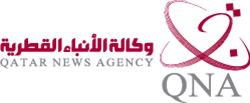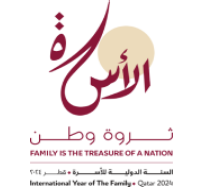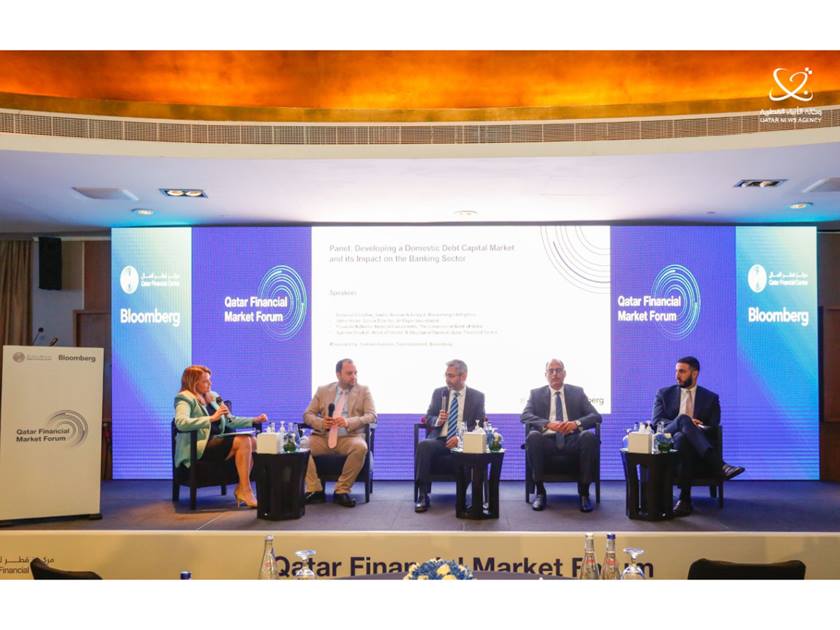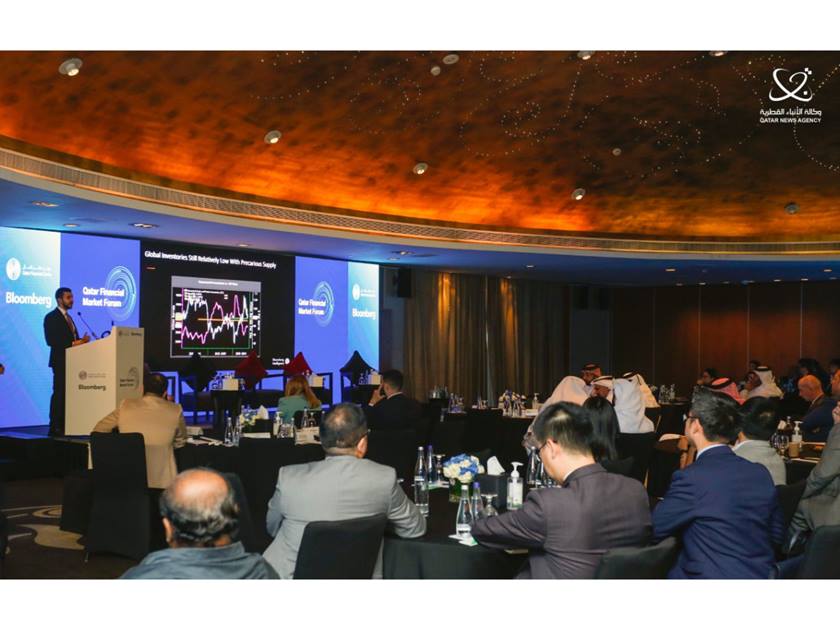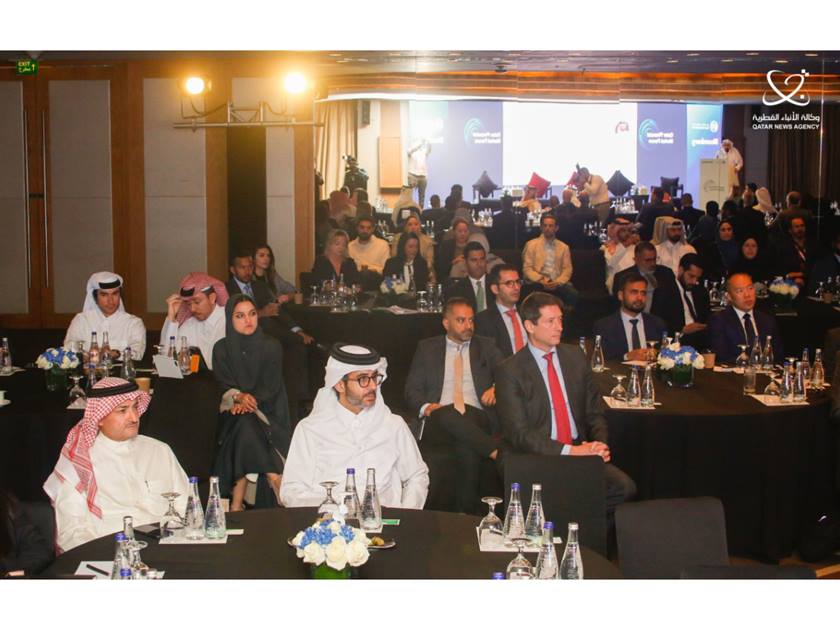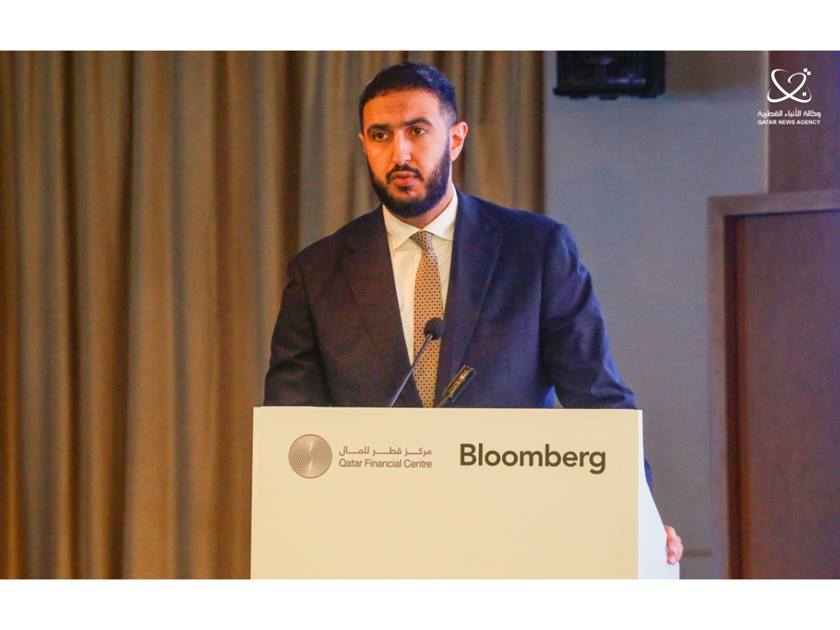Doha, 23 January (QNA) - Qatar Financial Market Forum, which was held today in Doha, discussed the banking situation and the ability of banks to facilitate the transition to a more sustainable economy, and the measures that must be taken to take full advantage of this impact to achieve national sustainability goals.
A number of specialists discussed issues related to bank financing, debt capital markets, and strategies for leading this industry towards comprehensive and sustainable growth during the forum, which represents a joint effort between the Qatar Financial Center and Bloomberg Intelligence, under the theme: "From Sustainable Financing to Debt Capital Markets, Uncovering Solutions for the Future of Banking in Qatar." Chief Executive Officer of QFC, Yousuf Mohamed Al-Jaida, said that the banking sector plays a major role in turning sustainability goals into reality. Building on this, many of the environmental challenges facing today's world can be addressed, highlighting the fundamental role of QFC's in Qatars capital market development journey.
Al-Jaida considered the forum an opportunity for open discussion on how to maximize financial solutions to advance the national goals of sustainability, saying that "it will tackle two of the most important topics affecting the banking sector in Qatar, which are the debt capital market, sustainable financing, and environmental/ social/ institutional governance. These two topics are important for the development of the sector and the transition to a more flexible financial environment and a sustainable economy." He referred to an effective trend in Qatar to strengthen the domestic debt capital market with the aim of diversifying financing sources and expanding sustainable financing solutions, as part of a broader strategy to strengthen the capital market infrastructure in the country and create a more sustainable future in line with Qatar National Vision 2030.
He explained that the State of Qatar is increasingly attracting international investors to the growing stock market, and there are supportive capabilities for domestic sukuk issuances, highlighting that Qatari banks have begun to enter the global debt capital market since the first issuance of sovereign sukuk in 2003 with a value of USD 700 million. In 2020, Qatar National Bank issued the first-ever green bonds in the country at a value of USD 600 million, which represents an remarkable achievement for sustainable financial development in Qatar. In addition, major banks and financial sector stakeholders are launching initiatives that promote sustainable banking and financing.
Al-Jaida added that by 2023, sustainable financing in Qatar is expected to provide investment opportunities worth USD 75 billion, which indicates the importance to make great efforts to promote domestic debt capital market, and adherence to the principles of sustainability and environmental, social and institutional governance to meat the growing need for sustainable financing.
Senior Research Analyst at Bloomberg Intelligence, Edmond Christou said: "Developing a domestic capital market helps banks tap into liquidity and strengthen long-term funding, to support a growing infrastructure pipeline." He added that despite the fact that Qatari banks issued less debt last year, diversification of the funding mix is still a top priority given that the debt held by local lenders accounts for only 8% of total liabilities, compared to over 11% for foreign rivals, stated Christou.
The Qatar Financial Market Forum included three presentations, the first of which was "analyses of energy prospects in 2023", while the second dealt with the topic "validating the banking sector in the Arab Gulf region", and the third reviewed the topic "the local debt capital market in Qatar: potential and pillars.
The presentations were followed by two discussion sessions on the development of the local debt capital market and its impact on the banking sector and sustainable financing, environmental and social practices and corporate governance, which discussed the most important factors affecting the Qatari financial market and the business environment.
The discussion in the first session focused on the liquidity situation in Qatari banks and their performance according to financing indicators in local and foreign currencies, and the challenges that affect the financing environment.
The second discussion session dealt with regional and global trends in the field of environmental, social and corporate governance practices, and the commitments of Qatari financial institutions to the principles of governance and sustainable financing.
The data presented by Bloomberg during the forum indicated that the value of debt issuances from Gulf banks since 2019 amounted to USD 105 billion, of which green bonds represent only 5%, which indicates great growth potential for green or sustainable financing, especially with the increase in the number of organizations that complies with the principles of environmental, social and corporate governance.
Qatar continues to develop a more diversified capital market. Through legislation related to the governance of existing and new financial investments, and continuous efforts to adopt comprehensive approaches to develop the capital market, the country is preparing to establish a specialized sustainable financing market, whose global value is expected to reach more than USD 22 trillion by 2031.
In this context, the Head of Islamic and Structured Finance at the Qatar Financial Center Ayman Doukali, said, in an exclusive statement to Qatar News Agency (QNA), that the Qatar Financial Center views Islamic finance as an important player for the Islamic financial sector in general, and that the center is working to develop this sector in Qatar.
He emphasized that Islamic banks in Qatar are among the largest and strongest Islamic banks in the region, and they have almost complete solutions, whether in terms of retail banking services or investment and treasury.
He added: "there remain some specific issues that the center will work on to better develop the sector, such as creating Islamic financial corridors with economies that are compatible with the vision of Islamic finance, such as Malaysia and Turkey, attracting the best Islamic financial technology companies to Qatar and at the same time creating Qatari companies and helping them to invest or work outside Qatar, in addition to developing the sukuk market and local sustainable financing". (QNA)
